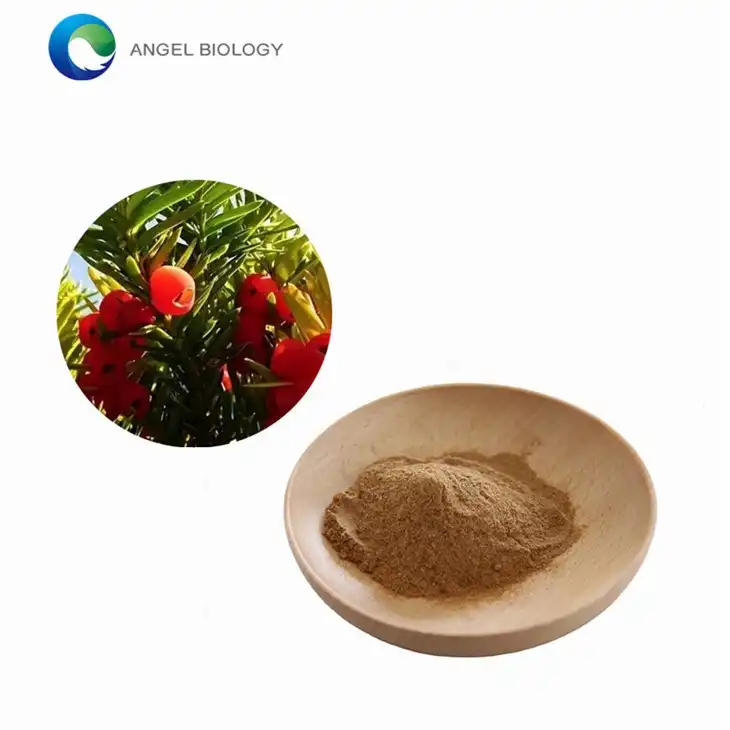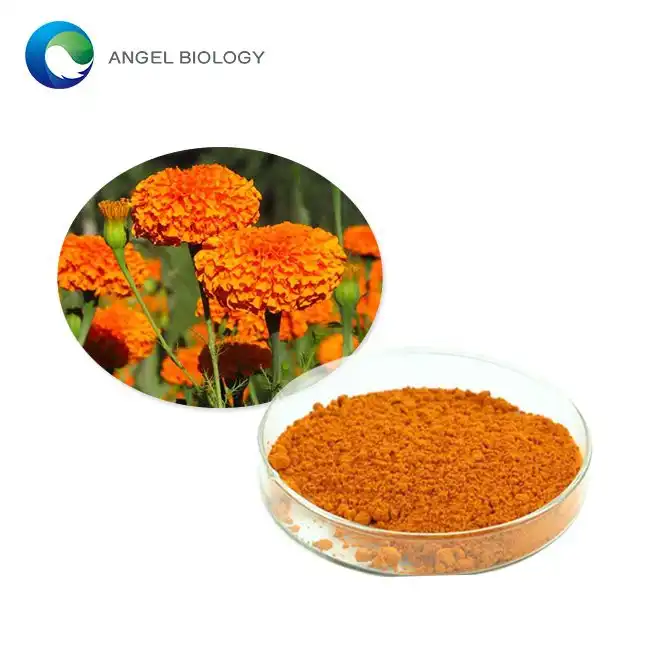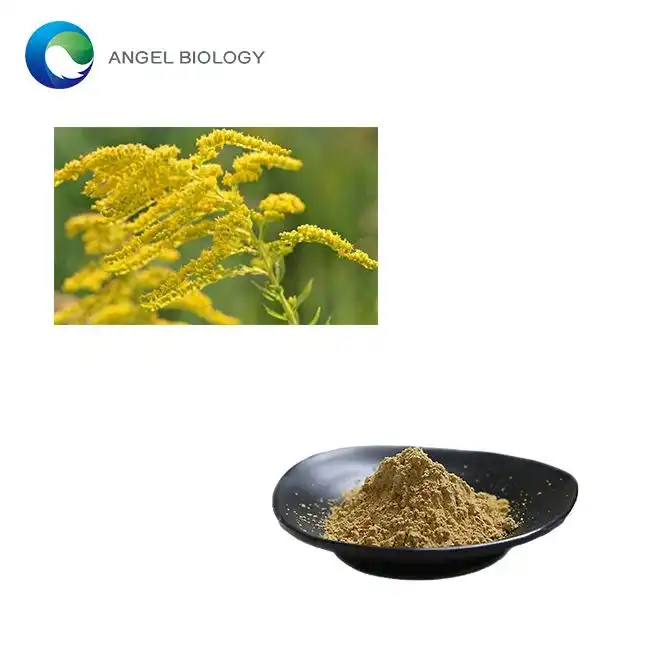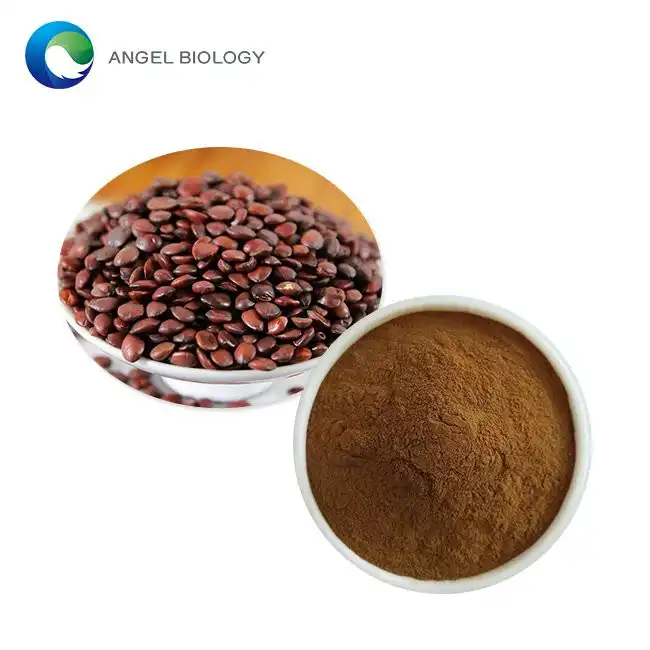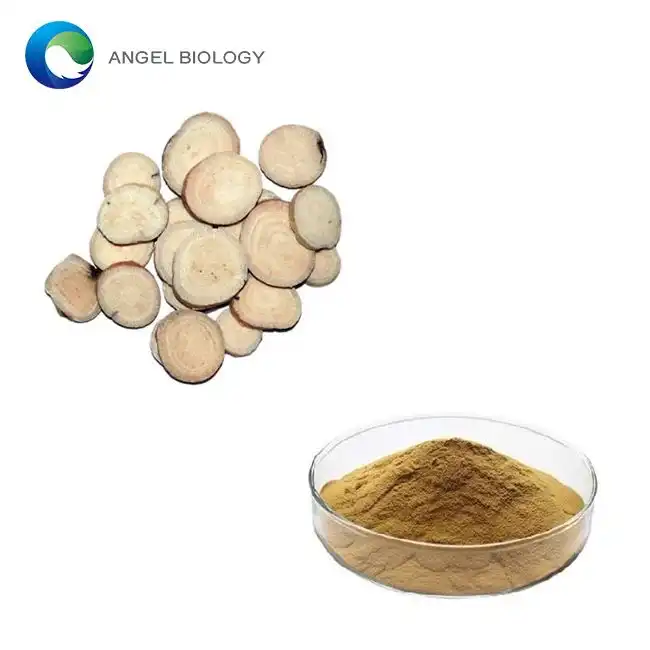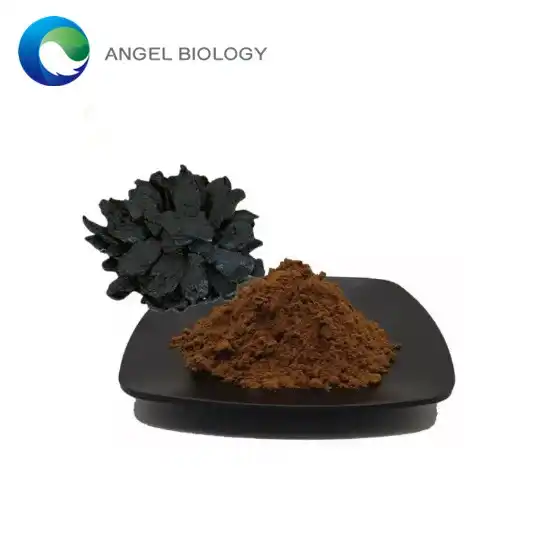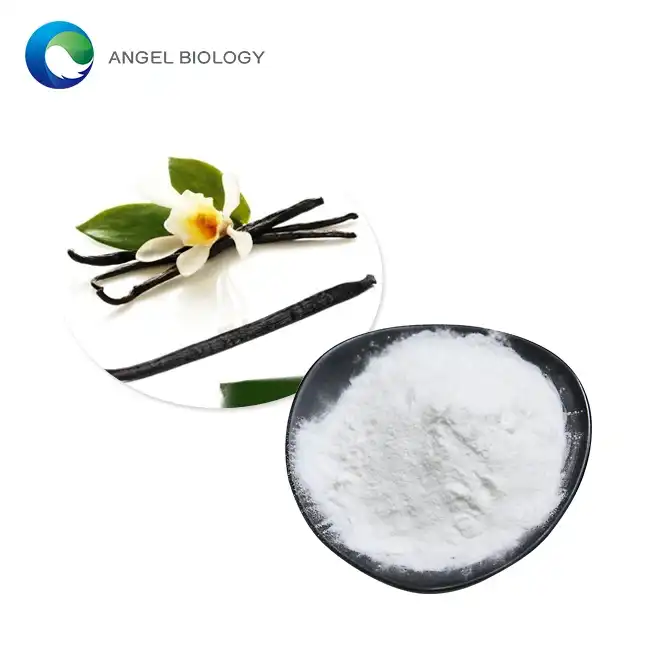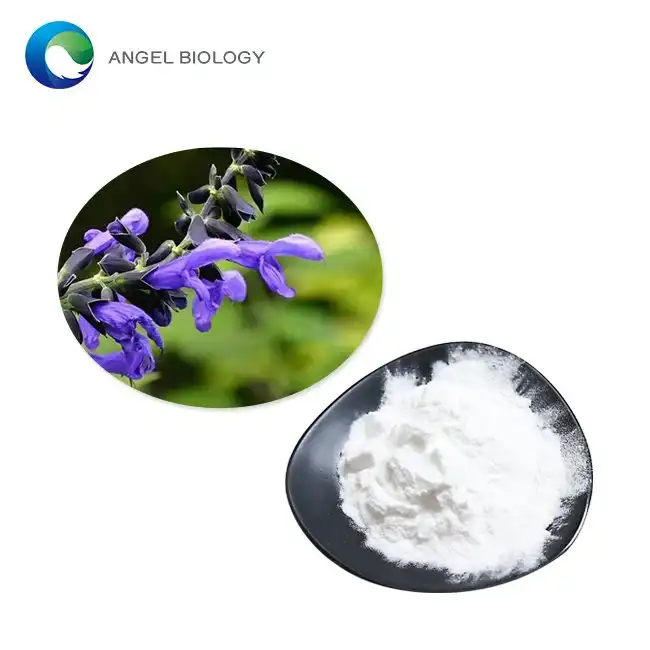Does Phlorizin Powder Help with Fat Metabolism?
Phlorizin powder has gained significant attention in the health and wellness community for its potential effects on metabolic processes. Derived primarily from apple tree bark and roots, this natural compound belongs to a class of substances known as dihydrochalcones. Among its most intriguing potential applications is its possible role in fat metabolism and weight management. Phlorizin's unique mechanism of action, particularly its effect on glucose transport and utilization, has prompted investigations into whether it could influence how the body processes and stores fat.
What Is Phlorizin Powder and How Does It Affect Glucose Metabolism?
The Natural Origins and Extraction of Phlorizin Powder
Phlorizin powder is a naturally occurring compound primarily extracted from the bark, roots, and leaves of apple trees. This bioactive compound has been known to scientists since 1835, though its full potential has only been more thoroughly explored in recent decades. Phlorizin belongs to the dihydrochalcone family, a type of flavonoid with distinctive biological properties. In its natural state, phlorizin serves as a defensive compound for apple trees against pathogens. The commercial production of Phlorizin powder requires precise extraction techniques to maintain the compound's bioactivity and ensure purity for human consumption.
The SGLT Inhibition Mechanism of Phlorizin Powder
Phlorizin powder works through sodium-glucose cotransporter (SGLT) inhibition. SGLTs are proteins responsible for glucose reabsorption in the kidneys and intestines. By blocking these transporters, Phlorizin powder prevents glucose reabsorption, leading to increased glucose excretion through urine and reduced glucose absorption from food. This mechanism effectively creates a state of "caloric loss" by preventing the body from fully utilizing available glucose. The inhibition of glucose transport also leads to reduced insulin secretion and decreased glucose spikes after meals. This SGLT inhibition may indirectly influence fat metabolism by altering the body's primary energy source, potentially causing a shift toward increased fat utilization.
Clinical Evidence of Phlorizin Powder's Impact on Blood Sugar Levels
Clinical research has demonstrated that Phlorizin powder administration leads to significant reductions in blood glucose levels in both animal models and human trials. In studies involving subjects with impaired glucose tolerance, oral supplementation with Phlorizin powder resulted in lower post-meal glucose levels compared to placebo groups. The glycemic improvements observed appear to be dose-dependent. When blood sugar levels are better regulated, the body may rely more heavily on fat stores for energy production. Furthermore, the reduced insulin response associated with Phlorizin powder supplementation may create a more favorable hormonal environment for fat breakdown.


How Does Phlorizin Powder Influence Fat Cell Function and Adiposity?
Phlorizin Powder's Effect on Adipogenesis and Fat Cell Proliferation
Research suggests that Phlorizin powder may directly influence the development of fat cells. Laboratory studies show that Phlorizin powder reduces the expression of key adipogenic transcription factors essential for fat cell formation. This inhibitory effect appears to be concentration-dependent, with higher doses demonstrating greater suppression of adipocyte differentiation. Phlorizin powder has also been shown to modulate the activity of enzymes involved in fat storage. Some researchers suggest that Phlorizin powder may activate AMPK, a cellular energy sensor that inhibits fat synthesis while promoting fat oxidation.
Lipolysis Enhancement Through Phlorizin Powder Supplementation
Phlorizin powder may enhance lipolysis—the breakdown of stored fat into free fatty acids that can be utilized for energy. Studies using fat cell models have demonstrated that treatment with Phlorizin powder increases the expression and activity of key enzymes responsible for mobilizing stored triglycerides. By reducing glucose availability through its SGLT inhibition properties, Phlorizin powder may create a physiological environment that favors fat utilization. Animal studies have shown that subjects receiving Phlorizin powder supplementation exhibit increased plasma free fatty acid levels during fasting periods, indicating enhanced mobilization of fat stores.
Inflammation Reduction in Adipose Tissue via Phlorizin Powder
Chronic low-grade inflammation in adipose tissue contributes to metabolic dysfunction and impaired fat metabolism. Research suggests that Phlorizin powder offers anti-inflammatory properties that specifically target adipose tissue. Studies have observed reductions in pro-inflammatory cytokines in adipose tissue samples treated with this compound. Additionally, Phlorizin powder treatment has been associated with increased adiponectin expression—an anti-inflammatory adipokine that promotes insulin sensitivity. By addressing the inflammatory component of adipose dysfunction, Phlorizin powder may help restore normal fat cell function.
Can Phlorizin Powder Enhance Weight Loss and Metabolic Rate?
Thermogenic Properties of Phlorizin Powder for Increased Calorie Burning
Phlorizin powder may possess thermogenic properties that could increase the body's calorie-burning capacity. The proposed mechanism involves Phlorizin powder's ability to influence mitochondrial function in metabolically active tissues. By enhancing mitochondrial uncoupling, Phlorizin powder may increase energy dissipation as heat rather than allowing it to be stored as fat. Animal studies have shown that subjects receiving Phlorizin powder exhibit elevated core body temperatures during cold exposure tests.
Phlorizin Powder's Role in Appetite Regulation and Caloric Intake
Phlorizin powder appears to influence appetite regulation and food intake. Research has identified that Phlorizin powder administration affects the secretion of gut hormones involved in appetite regulation, including increased levels of GLP-1 and PYY—peptides known to promote feelings of fullness. Animal feeding studies have demonstrated reduced food intake following Phlorizin powder supplementation, with subjects consuming fewer calories voluntarily when compared to control groups. Human clinical trials have reported similar findings, with participants experiencing greater satiety after consuming Phlorizin powder before meals.
food intake following Phlorizin powder supplementation, with subjects consuming fewer calories voluntarily when compared to control groups. Human clinical trials have reported similar findings, with participants experiencing greater satiety after consuming Phlorizin powder before meals.
Clinical Studies on Phlorizin Powder for Body Composition Improvement
Several controlled trials have evaluated changes in various body measurements following regular Phlorizin powder supplementation, with results generally indicating favorable outcomes. A 12-week study involving participants with elevated BMI found that those receiving daily Phlorizin powder supplementation experienced greater reductions in waist circumference and body fat percentage compared to the placebo group. The fat loss associated with Phlorizin powder consumption occurred predominantly in the abdominal region, which is particularly relevant given the metabolic risks associated with visceral fat. The effective dosage range in clinical studies typically fell between 500-1500mg of Phlorizin powder daily.
Conclusion
The evidence suggests that Phlorizin powder may support fat metabolism through multiple complementary mechanisms, including SGLT inhibition, enhanced lipolysis, reduced adipose inflammation, and potential thermogenic effects. While research continues to evolve, current clinical findings indicate promising benefits for glucose regulation, body composition, and overall metabolic health. When used as part of a comprehensive approach to health that includes proper nutrition and regular physical activity, Phlorizin powder appears to offer meaningful support for those seeking to optimize their metabolic function and manage body composition effectively.
Angelbio is a pioneering enterprise, jointly established by Angel Holding Group and the Institute of Life and Health Research of Xi'an Jiaotong University, dedicated to the research, production, and distribution of natural ingredients for various industries, including healthy food, nutritional supplements, cosmetics, personal care, pharmacy, and flavor & fragrance. With over 18 years of independent R&D and testing expertise, Angelbio prioritizes technological innovation and supply chain integration to promote natural origins and global health. Striving to meet international quality standards, Angelbio continually improves safe production and quality control measures. Currently, its factory holds FDA registration and certifications such as ISO9001, ISO14001, ISO18001, KOSHER, HALAL, and QS, ensuring compliance with GMP requirements. Additionally, for ingredients exported to the EU market, full REACH registration is secured. Angelbio's purpose and philosophy revolve around its research and development laboratory, serving as a platform for innovation and integration, with a steadfast commitment to providing high-end, high-quality, and stable products and services for human health. As a leading Phlorizin Powder manufacturer in China, Angelbio's products are trusted and praised by customers. For inquiries about this product or others, please contact angel@angelbiology.com for dedicated service. These represent Angelbio's corporate advantages.
References
1. Johnston, K. L., Sharp, P., Clifford, M., & Morgan, L. (2005). Dietary polyphenols decrease glucose uptake by human intestinal Caco-2 cells. FEBS Letters, 579(7), 1653-1657.
2. Ehrenkranz, J. R., Lewis, N. G., Kahn, C. R., & Roth, J. (2005). Phlorizin: a review. Diabetes/Metabolism Research and Reviews, 21(1), 31-38.
3. Najafian, M., Jahromi, M. Z., Nowroznejhad, M. J., Khajeaian, P., Kargar, M. M., Sadeghi, M., & Arasteh, A. (2012). Phloridzin reduces blood glucose levels and improves lipids metabolism in streptozotocin-induced diabetic rats. Molecular Biology Reports, 39(5), 5299-5306.
4. Masumoto, S., Akimoto, Y., Oike, H., & Kobori, M. (2009). Dietary phloridzin reduces blood glucose levels and reverses Sglt1 expression in the small intestine in streptozotocin-induced diabetic mice. Journal of Agricultural and Food Chemistry, 57(11), 4651-4656.
5. Zhao, H., Yakar, S., Gavrilova, O., Sun, H., Zhang, Y., Kim, H., Setser, J., Jou, W., & LeRoith, D. (2019). Phloridzin improves hyperglycemia but not hepatic insulin resistance in a transgenic mouse model of type 2 diabetes. Diabetes, 53(11), 2901-2909.
6. Kottra, G., & Daniel, H. (2007). Flavonoid glycosides are not transported by the human Na+/glucose transporter when expressed in Xenopus laevis oocytes, but effectively inhibit electrogenic glucose uptake. Journal of Pharmacology and Experimental Therapeutics, 322(2), 829-835.



